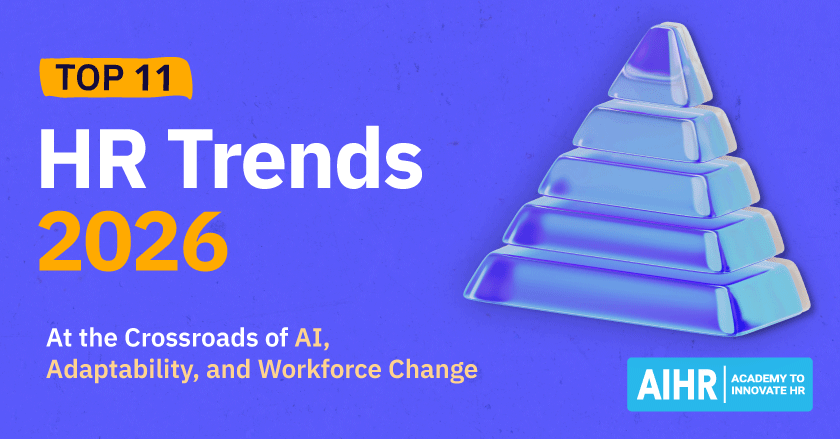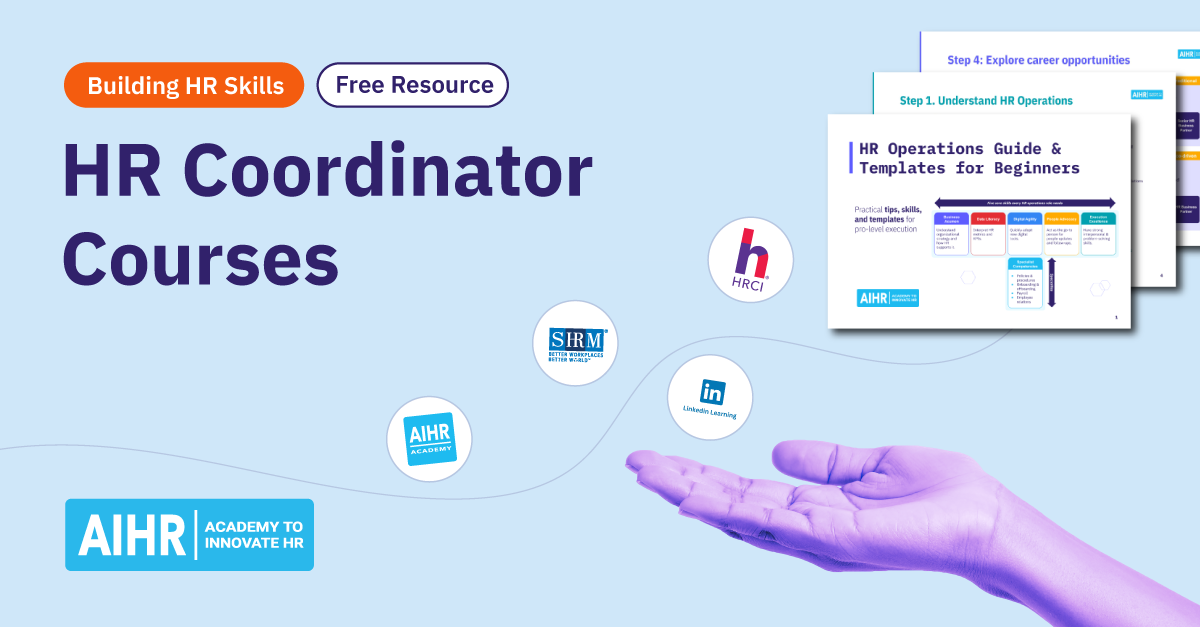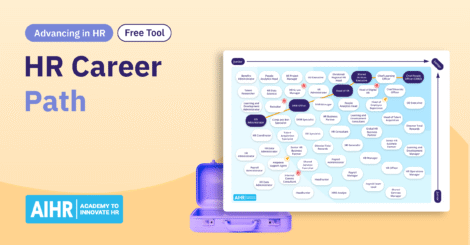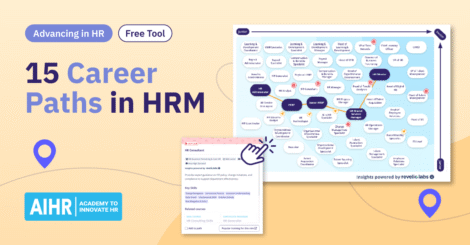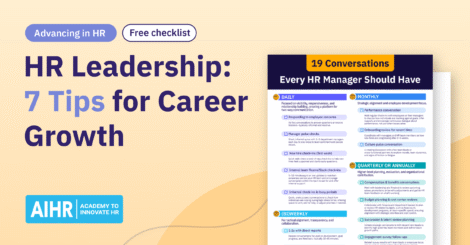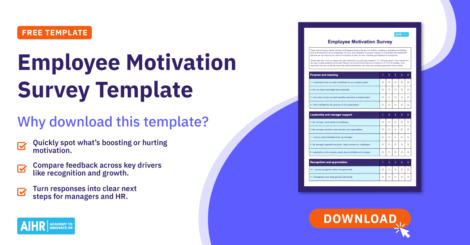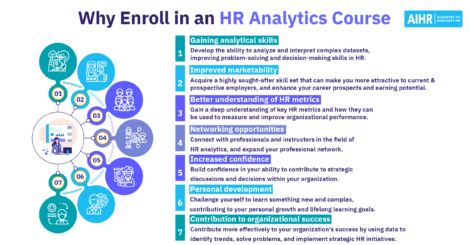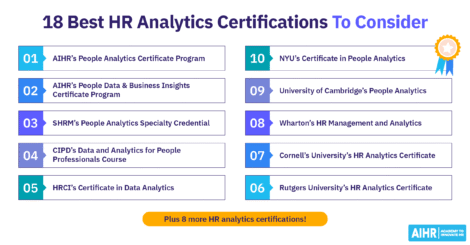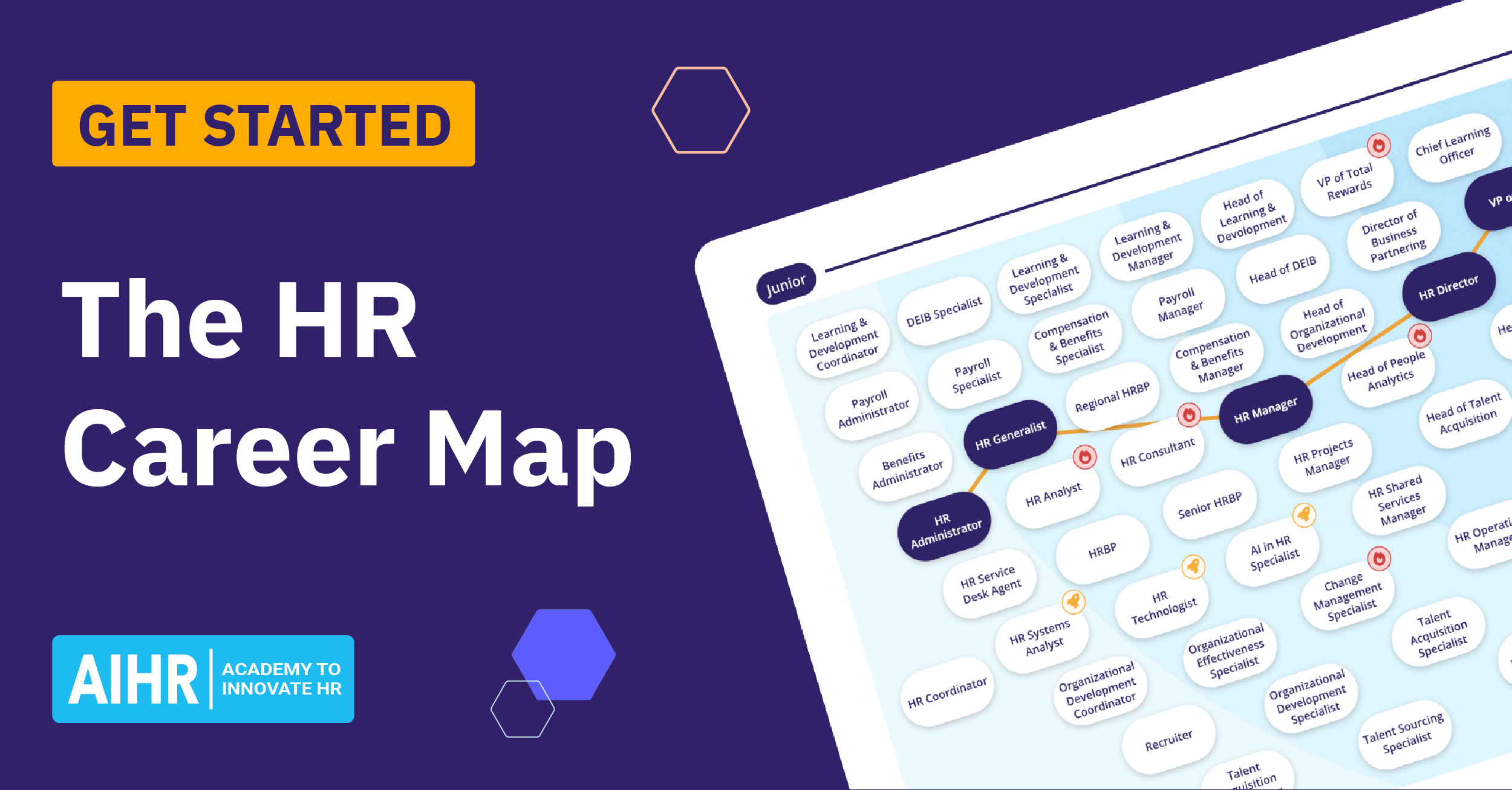One way to build a solid foundation for a successful Human Resources career is to take suitable HR Coordinator courses.
As companies have begun prioritizing efficient HR operations, the demand for HR Coordinators is growing. In fact, the position of Human Resources Coordinator is now among the top 25% of most in-demand HR roles.
This article discusses the responsibilities of an HR Coordinator, why and how you should become one, the nine HR Coordinator courses you should take, and how to choose the right course for yourself.
Contents
What is an HR Coordinator?
Why become an HR Coordinator?
What skills do you need in an HR Coordinator role?
9 top HR Coordinator courses to consider
Career paths: Where an HR Coordinator role can lead
How to choose the right HR Coordinator course
What is an HR Coordinator?
HR Coordinator is an essential operational role within HR, even though it’s typically considered an entry-level position. This person supports daily HR functions to ensure smooth, efficient work processes.
HR coordinators handle different administrative and clerical tasks, including scheduling interviews, maintaining employee records, assisting with onboarding, managing HR information systems, and responding to employee inquiries.
HR Coordinators connect employees and HR Managers, facilitate the coordination of recruitment activities, support performance management, and ensure compliance with company policies and labor laws.
Why become an HR Coordinator?
If you’re moving from an admin or non-HR role, the HR Coordinator position is a practical entry point into Human Resources. You’ll get direct experience with recruitment, onboarding, employee relations, benefits, and compliance.
The role also helps build core HR skills you’ll need to move into more senior roles like HR Business Partner, HR Manager, or HR Generalist. You’ll become confident in daily HR operations, which prepares you to handle performance management, succession planning, and organizational development.
HR Coordinators manage employee records, schedules, compliance files, and internal communication. It’s a good fit if you’re organized, detail-oriented, and enjoy both people- and process-focused work.
If you’re new to the HR Coordinator role and want to hit the ground running, download our HR Operations Guide & Templates for Beginners. It walks you through the fundamentals of HR Ops, offers a 4-step roadmap to grow in the role, and includes practical tools like a resume template and professional development plan to apply right away.
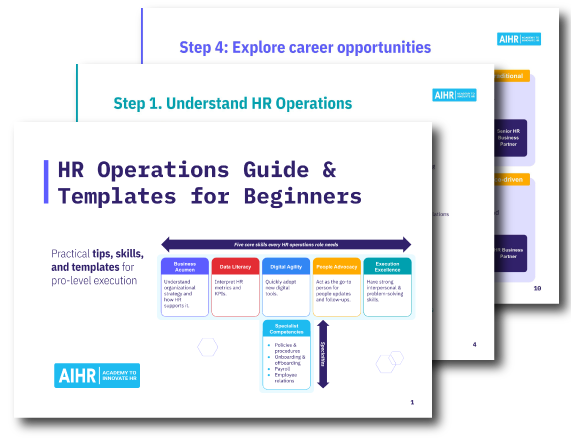
HR tip
AIHR’s Certificate Programs are recognized by renowned HR industry bodies
AIHR is an approved HR certification provider recognized by several respected HR associations. These include the Society for Human Resource Management (SHRM), HR Certification Institute (HRCI), and International Association for Human Resources Information Management (IHRIM).
What skills do you need in an HR Coordinator role?
Below are the key skills an HR Coordinator requires to do their job effectively:
Core HR skills
Employee life cycle management
The employee life cycle covers everything, from recruitment and onboarding to performance evaluations and offboarding. Handling the life cycle well ensures a smooth employee experience and supports retention. Consider AIHR’s Talent Management & Succession Planning Certificate Program, which covers end-to-end talent management.
Policy and compliance knowledge
An HR Coordinator must understand and adhere to relevant labor laws, company policies, and compliance practices to support audits and investigations, as well as ensure workplace fairness. This also helps protect the company from legal risk. You don’t have to be a legal expert, but you must know what rules apply and when to escalate an issue.
HRIS proficiency
Proficiency in systems like BambooHR, ADP Workforce Now, and PeopleSoft can help HR Coordinators generate reports, update personnel records, and troubleshoot system issues. As such, you’ll need to know how to navigate these systems efficiently. Being able to fix small issues or spot data errors reduces downtime and improves accuracy.
Data-driven and analytical skills
Data literacy
For HR professionals, this typically involves interpreting HR metrics to help them make data-driven decisions regarding the organization’s workforce. These metrics include turnover rates, time-to-hire, and absenteeism. Familiarity with these metrics also builds credibility with both your HR team and the company leadership.
Analytics tools
Skills related to analytics tools entail using platforms like Excel, Tableau, or Power BI for data visualization. You should also know how to sort and filter spreadsheets, use basic formulas and pivot tables, and create simple visuals like charts or graphs. This helps you translate data into visuals that stakeholders can understand at a glance, which is key to getting buy-in.
Predictive analysis
An HR Coordinator must be able to forecast HR trends to allow them to address workforce needs proactively. For instance, if turnover tends to spike after onboarding, you might flag the need to improve onboarding support. AIHR’s HR Metrics & Dashboarding Certificate can help you automate and create compelling reports.
Interpersonal and soft skills
Effective communication
An HR Coordinator must ensure accurate, concise, and understandable communication, be it verbal or written. This can entail explaining policies, answering employee questions, coordinating with hiring managers, and even delivering difficult information. Poor communication can cause confusion, mistakes, or mistrust, so it’s essential to get it right from the start.
Empathy and conflict resolution
Another important skill is addressing employee concerns and resolving conflicts effectively, professionally, and with sensitivity. A strong HR Coordinator listens without judgment, shows empathy, and responds with care and professionalism. The key is to be fair, assure involved parties of confidentiality, and focus on maintaining a healthy workplace.
Adaptability
An HR Coordinator must adapt easily to changes. This not only ensures you survive restructuring or system upgrades, but also enables you to help others through such changes. Whether you need to learn a new HR tool, update your approach to onboarding, or handle a sudden spike in hiring, you must be able to shift gears quickly.
Organizational and technical skills
Time management
HR Coordinators often juggle multiple requests, making time management a crucial skill to have. Time management means knowing what to prioritize, breaking down work into manageable parts, sticking to deadlines without sacrificing quality, and setting realistic timelines and following through. This helps them reduce bottlenecks and improve response times.
Attention to detail
Accuracy in HR documentation and processes is crucial. Small mistakes — i.e., a wrong start date on a contract, missed field on a compliance form, or incorrect salary records — can have serious (sometimes legal) consequences. Accuracy builds trust with employees and ensures the company stays compliant and professional at all times.
Technical proficiency
Understanding how to use new tools — and being open to learning more — can help you work more efficiently and keep your HR team competitive. HR Coordinators who embrace technology can automate repetitive tasks, gain useful insights from data, and drive a more modern and effective HR function that supports positive business outcomes.
Build the skills you need to become an HR Coordinator
Learn how to become an effective HR Coordinator, whether you’re new to HR or looking to further develop your existing HR skills.
AIHR’s HR Coordinator Certificate Program teaches you HR fundamentals across the entire employee life cycle, communication skills to represent HR effectively, and HR project management skills to manage competing demands.
9 top HR Coordinator courses to consider
Below are nine top courses that can help you in your journey to becoming an effective HR Coordinator. Whether you’re just starting out in HR or planning to transition from one HR role to another, the following courses provide a range of suitable options for you.
1. HR Coordinator Certificate Program (AIHR)
- Format and duration: Online and self-paced; 35 hours over 12 weeks.
- This course covers: Core administrative skills, digital agility, project and task management, soft skills, HR communications, and the employee life cycle.
- Cost: $1,125
- Find out more: HR Coordinator Certificate Program.
2. Digital HR 2.0 (AIHR)
- Format and duration: Online and self-paced; 36 hours over 12 weeks.
- This course covers: Digital HR, the future of work, design thinking and the employee experience, automation in HR, and digital change management.
- Cost: $1,125
- Find out more: Digital HR 2.0 Certificate Program.
3. Essentials of Human Resources program (SHRM)
- Format and duration: Option of a two-day seminar, a five-week program of three-hour sessions, or self-paced online learning over 18 hours.
- This course covers: Recruitment, engagement, performance management, talent development, total rewards, HR tech, people analytics, and HR legislation.
- Cost: $1,565 for members, $1,835 for non-members
- Find out more: Essentials of Human Resources program.
4. Associate Professional in Human Resources (aPHR) certification (HRCI)
- Format and duration: Online and self-paced; 12 weeks.
- This course covers: Talent acquisition, learning and development, compensation and benefits, employee relations, and compliance.
- Cost: $400
- Find out more: Associate Professional in Human Resources (aPHR) certification.
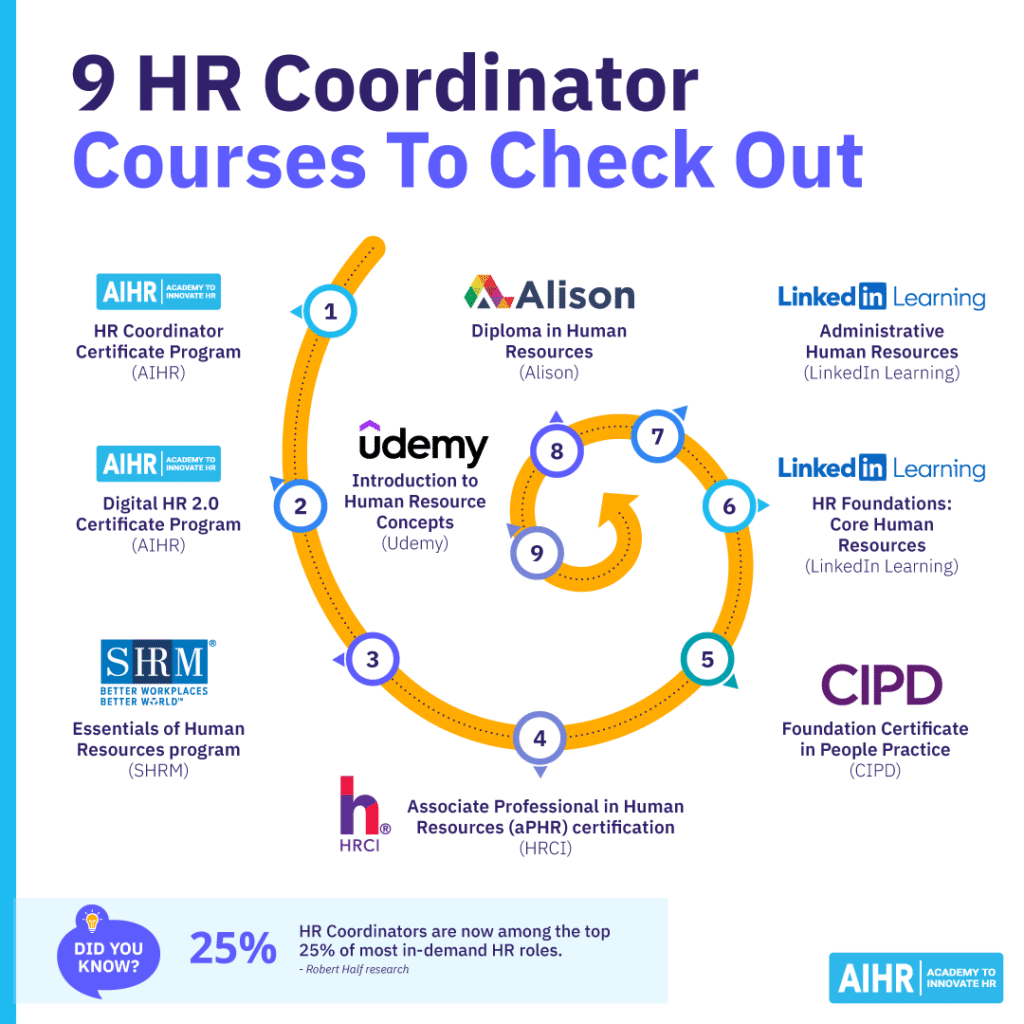
5. Foundation Certificate in People Practice (CIPD)
- Format and duration: Online, face-to-face, or blended; eight to 12 months.
- This course covers: Principles of analytics, core behaviors for people professionals, essentials of people practice, and change in context.
- Cost: $1,755 to $3,105
- Find out more: Foundation Certificate in People Practice.
6. HR Foundations: Core Human Resources (LinkedIn Learning)
- Format and duration: Online and self-paced; 55 minutes.
- This course covers: Managing global talent, improving organizations, growth opportunities, and incentives, helping employees do their best work
- Cost: Included in LinkedIn Premium
- Find out more: HR Foundations: Core Human Resources.
7. Administrative Human Resources (LinkedIn Learning)
- Format and duration: Online and self-paced; one hour.
- This course covers: Human Resources basics, the employee life cycle, and core HR responsibilities
- Cost: Included in LinkedIn Premium
- Find out more: Administrative Human Resources.
8. Diploma in Human Resources (HR) (Alison)
- Format and duration: Online and self-paced; 10 to 15 hours.
- This course covers: The recruitment and selection processes, training and development, organizational culture, and employee motivation and retention
- Cost: Free
- Find out more: Diploma in Human Resources (HR).
9. Introduction to Human Resource Concepts (Udemy)
- Format and duration: Online and self-paced; eight hours.
- This course covers: Attracting and retaining employees, selection and orientation, performance appraisal, and the legal environment of HRM
- Cost: $45
- Find out more: Introduction to Human Resource Concepts.
HR tip
After successfully completing AIHR’s HR Coordinator Certificate Program, you’ll receive a digital certificate you can share on professional platforms like LinkedIn. You can also add it to your résumé to demonstrate your newly acquired skills and knowledge.
Career paths: Where an HR Coordinator role can lead
The HR Coordinator role can prepare you for the following HR positions:
HR Generalist
An HR Generalist manages multiple HR functions (e.g., employee relations and benefits administration). This role allows an HR Coordinator to take on broader responsibilities, gain strategic experience, and become a more influential HR professional. To get there, HR Coordinators must learn HR policies, participate in cross-functional projects, or assist with generalist tasks.
HR Specialist
A Human Resources Specialist may specialize in areas like payroll, L&D, compliance, talent acquisition, HRIS, or employee relations. This role allows an HR Coordinator to deepen their expertise in a specific HR area and build a focused career path. To advance to this position, express interest early and build niche knowledge in your chosen field of specialization.
HR Business Partner
An HR Coordinator with strong business acumen and interpersonal skills can progress into an HR Business Partner (HRBP) role, where they can work directly with management to align people strategy with business requirements. They build relationships with managers, learn about the business, and participate in HR planning discussions.
HR Manager
HR Coordinators interested in leadership roles can advance to become HR Managers eventually. This role allows you to lead teams, manage end-to-end processes, and set team goals. To qualify for this position, you should take on project leadership roles, mentor interns or new hires, and seek small team lead opportunities.
How to choose the right HR Coordinator course
When you’re entirely new to the field, look for foundational courses that cover the basics of HR, including talent acquisition, onboarding, employee relations, and the employee life cycle. Programs like AIHR’s HR Coordinator Certificate program enable a solid entry point to the field of human resources.
Start with the basics
If you’re new to HR, pick a foundational course covering the employee life cycle, recruitment, onboarding, and employee relations. AIHR’s HR Coordinator Certificate Program, for instance, can give you a solid start. If you’ve worked in admin roles, look for training that bridges the gap, such as managing employee records, assisting payroll, and supporting HR processes.
What to know if you want to specialize
Some courses let you dive deeper into specific areas. If you’re interested in recruitment, look for training in sourcing and recruiting. If compensation and benefits appeal to you, choose a course that covers pay structures, benefits management, and legal compliance.
What to look for in a course
- Accreditation and reputation: Choose programs backed by recognized institutions or professional HR bodies like HRCI or SHRM, as these add weight to your résumé.
- Research the provider: Are the instructors qualified HR professionals? Do former students rate the course highly? This can determine whether the course is worth taking.
HR tip
You don’t need prior HR experience or formal education to qualify for any of AIHR’s Certificate Programs. These Human Resources certifications are designed to be fully accessible to anyone, including beginners. If you’re considering entering the HR field, you can enroll today and start building foundational HR skills immediately.
Course content and certification
Good courses teach skills you’ll use every day, such as managing HR systems, responding to employee questions, maintaining records, and coordinating training or hiring processes. Great ones also cover strategic topics, like how HR supports business goals, and how to use HR data in decision-making.
Additionally, some courses only include a completion certificate, while others offer recognition for HR certifications. If you’re just looking to enrich your current skills and knowledge, a simple one-day course could suffice. But if you want to boost your résumé and advance your HR career, a recognized HR certification would be a better choice.
Cost, time, and format
Course prices range from free to a few thousand dollars. Choose one that fits your budget and offers good value for money. At the same time, consider your schedule and how the courses you’re interested in can fit into it, or if you can afford to make some adjustments to accommodate them.
The course’s format is also an important factor. Some are online and self-paced, while others have set deadlines or require in-person attendance. The former offers flexibility, especially if you work or study full-time. In-person classes, on the other hand, facilitate direct interaction with instructors and peers. If you learn better that way and your schedule allows, consider the latter.
To sum up
Enrolling in an HR Coordinator course is a worthwhile investment in building a thriving HR career. It will equip you with essential skills and knowledge, such as managing HR operations, supporting employees, and understanding and complying with employment laws and regulations.
Earning a certificate or credential from a reputable provider can open doors to more advanced HR positions, boost your earning potential, and increase your chances for promotion. Through careful evaluation of your professional goals, course content, cost, and time commitment, you can choose a training program that aligns with your HR career aspirations.


